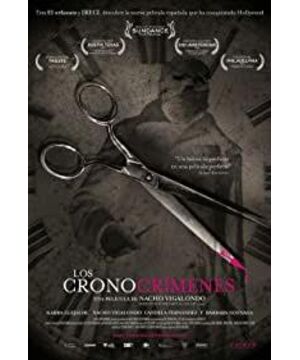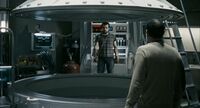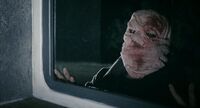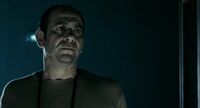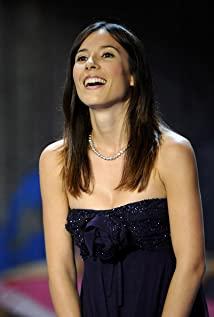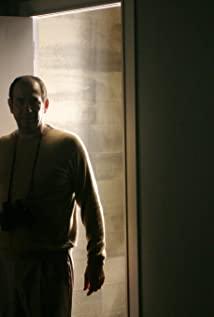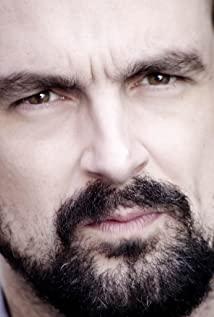The function of the time machine is to make a person disappear from this point in time when generating power, which is equivalent to evaporating. But it did not completely disappear, but was sent to the corresponding spatial location some time ago, that is, in the same time machine. Therefore, when the time machine does not produce power, individuals will pop out of it. The causal relationship is because the time machine at a certain time in the future sends power and sends the people. Everyone can imagine: if the Hector sent to the past struggles in the pool and no one opens the door for him, then the result is that there are more Hector corpses in the past world, but there is less Hector living in the current world.
How many Hectors will there be in the world after the time machine has worked? I think the premise of this play is: what has happened will definitely happen. Let's first assume that the time machine only issued power once at 10:00 on January 1, 2009. In this way, no matter what happened to the Hector back in the past, a live Hector will enter the time machine at 10:00 on January 1, 2009, and the time machine will work once, and then this Hector will be on January 1, 2009. At 10:00 on the day, the world disappeared. If the other Hector who returned to the past does not survive, then there will be no Hector alive in this world after 10:00 on January 1, 2009 (but it is possible to find the corpse if the corpse is not destroyed). If another Hector who returned to the past survives, there will be a Hector somewhere in the world after 10:00 on January 1, 2009. On the surface, at 10:00 on January 1, 2009, one Hector disappeared from the time machine, and another Hector appeared somewhere in the world, a bit like teleportation. But in fact, the Hector who appeared came around after a circle in the past, so his memory is different from the Hector who disappeared. Unlike the Monkey King in Dragon Ball, the memory before and after the instant move is the same. In addition, there were two Hector living people before the power was issued at 10:00 on January 1, 2009, so they are completely different from teleportation.
The situation in this play is that the time machine has performed twice. In the old time machine, two Hectors popped out of thin air. Fortunately, neither of them drowned. The time they popped out in the play was only a few minutes before and after. The first one that popped out was Hector3. His memory was: I didn't want to start the time machine for the second time, but mistakenly thought that his wife was dead, and mistakenly thought that going back to the past could change the fact that his wife was dead.
He mistakenly thought this was important, and if he didn't think so, he wouldn't start the time machine a second time. Then he would become the Hector who survived after starting the time machine for the first time, and finally found out that his wife was not dead, but that the dead was a pretty girl who was killed by himself. And Hector in the ending of the film feels that he saved his wife and indirectly murdered the pretty girl, bearing the condemnation of his conscience. I believe he can get past the police by fooling him.
The first Hector3 that popped out had the memory of Hector2+Hector1. When he was in Hector2, he wanted to destroy the walkie-talkie and then find the battery to enter the time machine. Later, he accidentally found the battery, even if he did not accidentally find it, he would look for it. Because at that time he had been arbitrarily acting, he believed that the past could be changed, and the purpose of destroying the walkie-talkie was to prove that there would be a different past, so his wife's death might also be changed (by going back to the past to kill Hector2). But when the walkie-talkie was found in the trash after the crash, he immediately understood that the past cannot be changed, and it will not be changed in the future, so he was depressed for a while. He told the man of science to try to prevent the bandage Hector2 from entering the time machine. In fact, he already knew that Hector2 would still enter the time machine and beat him a few times, so he said to himself that at least someone can beat you a few times. Because he has the memory of Hector2, he knows that this is bound to happen in the future. Then he met the pretty girl and didn't do anything, until the pretty girl took him back to his house, he tried to stop it because he didn't want to watch his wife die again. Then he sat there, I think it was because of his sense of time, because he had memories of Hector2 during this period, so he felt that his wife's death was approaching. But just after his sad expression, a miracle appeared. His wife appeared in front of him and said to him: "There is a masked man outside. I ran here to hide. I heard someone on the stairs, in the house. Someone, I have called the police." Then he said, "God." Because he already understood that it was not his wife who died. Although the past could not be changed, he was wrong. Then from "There are people on the stairs, there are people in the house" he thought that it must be a pretty girl who died, and she looked like his wife. Because he had the memory of Hector2, Hector2 thought it was his own wife who was chasing after him and killed him by mistake. So Hector3 hides and locks his wife first, so he can rest assured, haha. Then lied to the pretty girl to change her dress, and lied to her to be killed by Hector2. Then he sat in line with his wife and said that we still have a while before it rains (that is, before the police car arrives). Do you want to tell his wife the story of the Moonlight Treasure Box, and then make a confession?
When Hector1 and Hector2 entered the time machine, only Hector3 was left in the world. However, he retained the memories of Hector1 and Hector2. The film seems to say that only when the time machine is turned on can it receive people who will send it in the future. But how does it know in advance that someone is coming? Maybe you will receive a warning signal first, so don't think too much about it.
As mentioned earlier, if Hector2 does not start the time machine for the second time, then he will become the Hector that survived the first time the time machine was started. In the end, he found that his wife was not dead, but the pretty girl who died was killed by himself. But from the perspective of this play, it is impossible. Because there is Hector3, it means that Hector2 must have started the time machine for the second time. Because of the causality of our daily experience, the cause occurs in the past, and the effect occurs in the future. The concept of "time machine" makes the cause occur in the future and the effect occurs in the past, and this past effect must be able to deduce the future cause along time. This will not make people feel contradictory. To put it simply, "Hector2 started the time machine for the second time", so "Hector3 framed a pretty girl so that Hector2 mistakenly thought that he had killed his wife", so "Hector2 started the time machine for the second time". The mutual cause and effect become an established fact. So if it is discussed that Hector2 does not start the time machine for the second time, that is another story that happened in parallel time and space.
Another: Schrödinger’s cat reflects that the so-called definite state of the universe that we recognize is obtained through our "observation". Excluding our "observation", the state of the universe itself is uncertain. Please refer to http://www.lansin.com/diggNewsAction.html?artid=101513&channel=xlsh to make it clearer.
If everything has happened, it's just that we can't grasp all the information. We can only grasp the information that we have experienced and called the past. And the Buddha can foresee things after tens of thousands of lives, maybe he has all the information. I remember once saw that a high-ranking Bodhisattva can melt tens of billions of kalpas into one thought. I don’t know whether to feel the feeling for so long as one thought, or to melt so much information in one thought. If it is the latter, they will not feel that it exists in the past, present, or future. Time itself is an illusion.
View more about Timecrimes reviews


